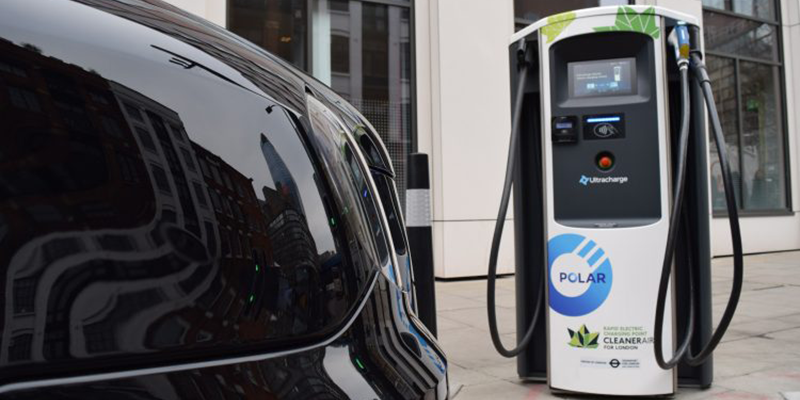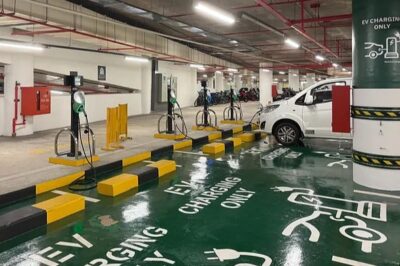Electrification becomes an election topic in Britain
The British Labour party, currently in opposition, is taking a stand on electric mobility for the new elections that are likely to take place soon in the wake of Brexit chaos. In the event of an election victory, Labour wants to massively promote the purchase of electric cars with a series of measures.
+ + Kindly see our update below + +
Under the slogan “Jumpstarting the Electric Car Revolution” Labour has promised a network offensive, purchase incentives, car-sharing offers and a scrapping programme.
The Labour Party says that they will put 3.6 billion pounds (around 4 billion euros) into the expansion charging station networks in order to have enough charging points for 21.5 million electric cars in operation by 2030. This is would double the number of electric cars that the government planned in the same period by the governing conservative party. Labour promises ultra-fast charging stations along motorways and a mixture of fast and HPC charging stations in urban areas.
Labour’s promise includes electricity “…generated from renewable sources and distributed by Labour’s publicly owned grid and newly created National and Regional Energy Agencies.” Labour says that “These bodies will also oversee the rollout of the EV charging networks and create up to 3,000 new jobs for electricians and network engineers.”
In addition, the party wants to support 2.5 million interest-free loans of up to 33,000 pounds (around 37,000 euros) for the purchase of electric cars and link these to mandatory participation in a major Vehicle 2 Grid test. The loans are primarily intended for low-income households, residents of rural areas, the self-employed, small entrepreneurs and small and medium-sized enterprises. According to Labour, the programme is intended to ensure that access to electric cars is possible for more than an elite few. With this, the Labour Party also hopes to re-enliven the British automobile industry as well as creating new jobs, while making it possible to charge cars with renewable energy. The Labour Party promises to issue 500,000 interest-free loans every year, for five years with a maximum loan size of £33,000 in the first year and dropping as EV costs fall. The loans would be issued by car manufacturers and dealers but guaranteed by the government.
Labour is also pursuing the goal of providing 33,000 e-cars for car-sharing services. Public “Community Car Clubs” are to serve as organisational bodies. Unlike private operators who focus on the big cities, these clubs could be introduced throughout the UK. Labour says that a national car club would provide expertise and start-up funding to support the creation of each offshoot. These cars should be made in Britain, says Labour.
In addition, Labour also wants to push for a rapid change from combustion cars to electric cars. For this purpose, the introduction of a scrapping program is planned, which would initially be available for one year. According to the party, it will help to quickly replace 400,000 of the most polluting cars with electric cars. In concrete terms, this means that anyone who replaces a combustion engine that is more than ten years old with a new electric car will receive a subsidy of around 2,000 pounds (2,260 euros).
Labour plans to use incentives to encourage all fleet operators to switch completely to electric vehicles by 2025. Last but not least, the entire governmental vehicle fleet should be electrically powered by 2025.
Update 30 September 2019: Shortly after the opposition Labour Party presented their plan for the promotion of electric transport in view of the likely forthcoming new elections, the Tories are now following suit. The conservative party is now promising a new fund for investing up to £1 billion over five years in “green” technologies in the automotive industry, including batteries, electric motors, power electronics and fuel cells.
Update 9.12.2019: Shortly before the UK’s early parliamentary elections on 12 December, the opposition Labour Party is adding to their climate and air quality protection policies with regard to transport. After Labour had already promised massive investments in electromobility in September should they win the election, the party is now extending this with a four billion pound investment pledge and the aim of electrifying all of the approximately 35,000 buses in England by 2030.
labour.org.uk (charging infrastructure), labour.org.uk (interest-free loans), labour.org.uk (car-sharing), labour.org.uk (scrapping scheme)
Update I: itv.com, inews.co.uk, Update II: bbc.com, labourlist.org





0 Comments